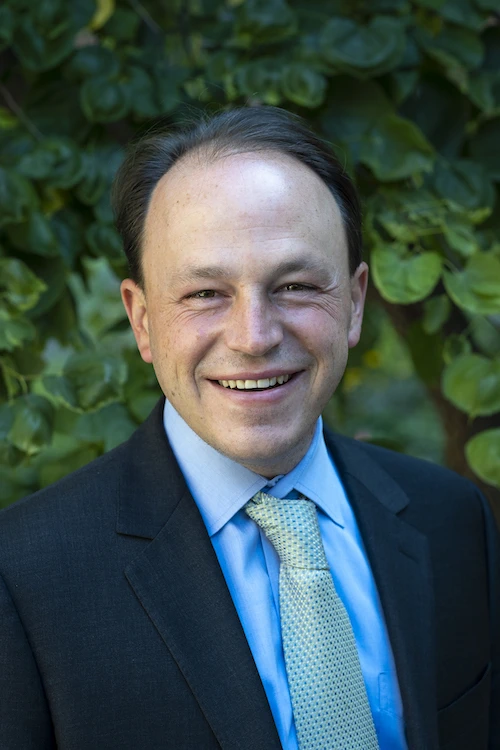Ask the expert: What an earlier primary means for Michigan and the 2024 election
January 24, 2024 - Jack Harrison
This article originally was published in MSUToday here.
The 2024 presidential election is underway with the first contests being Iowa and New Hampshire. While Iowa holds caucuses, New Hampshire holds an open primary — illustrating that the way states assign their delegates isn’t always the same. For this election, Michigan’s contests are now sooner, on Feb. 27 and March 2 — with Michigan Republicans now holding both a primary and caucus. So, how does it all work?

Matt Grossmann is the director of Michigan State University’s Institute for Public Policy and Social Research, as well as a professor in the Department of Political Science in the College of Social Science. Grossmann is an expert in both state and national politics. He answers questions about how to understand different systems and the role Michigan will play in 2024.
How do the presidential primaries work for Republicans and Democrats?
Officially, Democrats and Republicans select their nominees at national conventions this summer. The presidential nomination process evolved out of reforms to the delegate selection process for those conventions, which now means delegates are overwhelmingly selected based on presidential primary results. From the voter’s perspective, it often looks like any other election where you select your preferred candidate. But the parties still have power to coordinate their rules and selection procedures. That means there are still party differences, such as which states are allowed to go earlier in the process and whether the state winner gets all of the delegates from that state. Usually, the winner is determined when all other candidates drop out after it becomes infeasible for them to gain enough delegates to win. Officially, the winner needs to accumulate a majority of delegates. But the winners will likely be clear after most states vote early in the process.
How does a caucus work?
A caucus is a party meeting that can include the selection of delegates. The Iowa caucuses evolved out of a three-round process for selecting delegates to county conventions to select delegates to the state convention, who select delegates to the national convention. Caucuses now play a smaller role in the process, with most delegates selected by primaries. How delegates are awarded differs by state.
How is a general primary different from a caucus and why does format vary by state?
A primary is a normal election to select a party nominee, but the presidential primaries officially select delegates affiliated with the candidates. To organize a primary for delegate selection, a state party has to coordinate with the rules of their state and their national party. States often like to go early in the process (while several candidates are still in the race and they might influence other states), but the national parties set the rules on whether those voting early are selecting delegates to the national convention. This year, the Democratic Party approved Michigan moving earlier in the process and the Michigan Legislature (controlled by Democrats) moved our election date earlier in the process. But there is not really a contest on the Democratic side. Republicans had to adapt to this process because their national party did not approve a move earlier in the process.
Why do Michigan Republicans have a hybrid caucus this election and how does it work?
Michigan Republicans are trying to adapt to their national party rules and the state government-held election (coordinated by Democrats). There are also parts of the party that would like voters to have less of a role in nominating candidates compared to those more involved in party organizing and activism. The idea behind a hybrid system is to have a meaningful election where voters have a role in selecting the nominee, but official delegate selection can still conform to national rules and enable party activists to have a role in the process.
What are the important dates in Michigan’s voting process?
Both parties will hold their primaries on Tuesday, Feb. 27 and the Republicans will have their caucus on Saturday, March 2, which awards most of the party’s delegates. Michigan voters who want to participate must ensure they are registered for the primary by Monday, Feb. 12. Absentee ballots requested by mail must be done so by Friday, Feb. 23. It is also important to know that Michigan now has early in-person voting, which communities must start by Saturday, Feb. 17.
Will Michigan’s earlier primary date have a significant effect on the presidential race?
On the Democratic side, there is not much of a race against the incumbent president. But Michigan has an opportunity to set the terms for future elections, showing that it can become engaged, with diverse interests, and earn the right to vote early in the process in 2028. On the Republican side, it will depend on whether candidates other than Donald Trump remain in the process and how viable they are by the time Michiganders vote. Since Michigan does not have party registration, voters will be able to participate in the primary of their choice, which has provided an incentive for individuals to vote in the contest that presents the most uncertainty.
What are some fun facts about previous presidential primaries?
- Barak Obama was not on the primary ballot in 2008 because Michigan jumped in line, holding a primary before national party rules allowed it on the Democratic side. Eventually, the delegates were still seated — but only after it was clear that they would not put Hillary Clinton over Obama.
- In 2016, Bernie Sanders unexpectedly defeated Hillary Clinton in the Michigan primary, prolonging the Democratic contest, in part because many Democratic-leaning voters decided to vote in the Republican contest.
- John McCain won the 2000 Michigan Republican primary over George W. Bush — Michigan was one of only seven states where McCain won over Bush.

